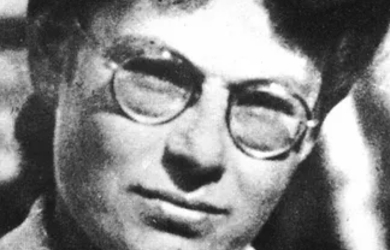 Marianne Cohn was born in Germany in 1922. Her family fled the terrors of Nazi rule by escaping to the French city of Moissac, where a Jewish children’s home was established during the war. Cohn decided to leave her high school studies and join the staff of the children’s home. She also joined the Jewish scouts movement, and the union of Zionist youth movements. In October 1943, the children of the home were distributed around Moissac to prevent their capture by the Gestapo. Cohn and a group of friends moved to Grenoble. There, after the banning of the Scouts, she joined the Sixième, an organisation which sought to protect Jewish children.
Marianne Cohn was born in Germany in 1922. Her family fled the terrors of Nazi rule by escaping to the French city of Moissac, where a Jewish children’s home was established during the war. Cohn decided to leave her high school studies and join the staff of the children’s home. She also joined the Jewish scouts movement, and the union of Zionist youth movements. In October 1943, the children of the home were distributed around Moissac to prevent their capture by the Gestapo. Cohn and a group of friends moved to Grenoble. There, after the banning of the Scouts, she joined the Sixième, an organisation which sought to protect Jewish children.
Cohn and her comrades worked to rescue children across France. Their work focussed initially on providing aid to children living in difficult conditions, setting up child care facilities, providing education, and integrating them into agricultural farms. However, after the summer of 1942, the work focussed on smuggling children away to Spain or Switzerland, finding hiding places for children in special childcare facilities, monasteries, or with French Families.
On the 31st of May, 1944, Cohn arrived in Leon with twenty eight teenage children. The next day, the truck they were hidden in was stopped by a Nazi patrol 200 meters from the border crossing near the city of Annemasse. Cohn and the driver presented their forged documents to the patrol and were arrested, interrogated, and beaten. The group was moved to the jail in Annemasse, and Cohn was beaten and interrogated daily. Jean Deffaugt, the mayor of Annemasse who helped the predominantly Jewish prisoners, organised an operation to rescue Cohn. She refused, out of concern for the fate of the children.
After a month of torture, Cohn and two other women were taken by the Gestapo. Their bones were found in a shed in Ville la Grand after the liberation of Annemasse in August 1944. She was murdered by the blows of a shovel inflicted by members of the French militia who raided the jail. Jean Deffaugt succeeded in saving the lives of the twenty eight children, who carried with them a poem that Cohn had written while in jail.
The poem reads as follows:
I shall betray tomorrow, not today.
Today, pull out my fingernails,
I shall not betray.
You do not know the limits of my courage,
I do.
Milena Jesenska & Margarete Buber-Neumann